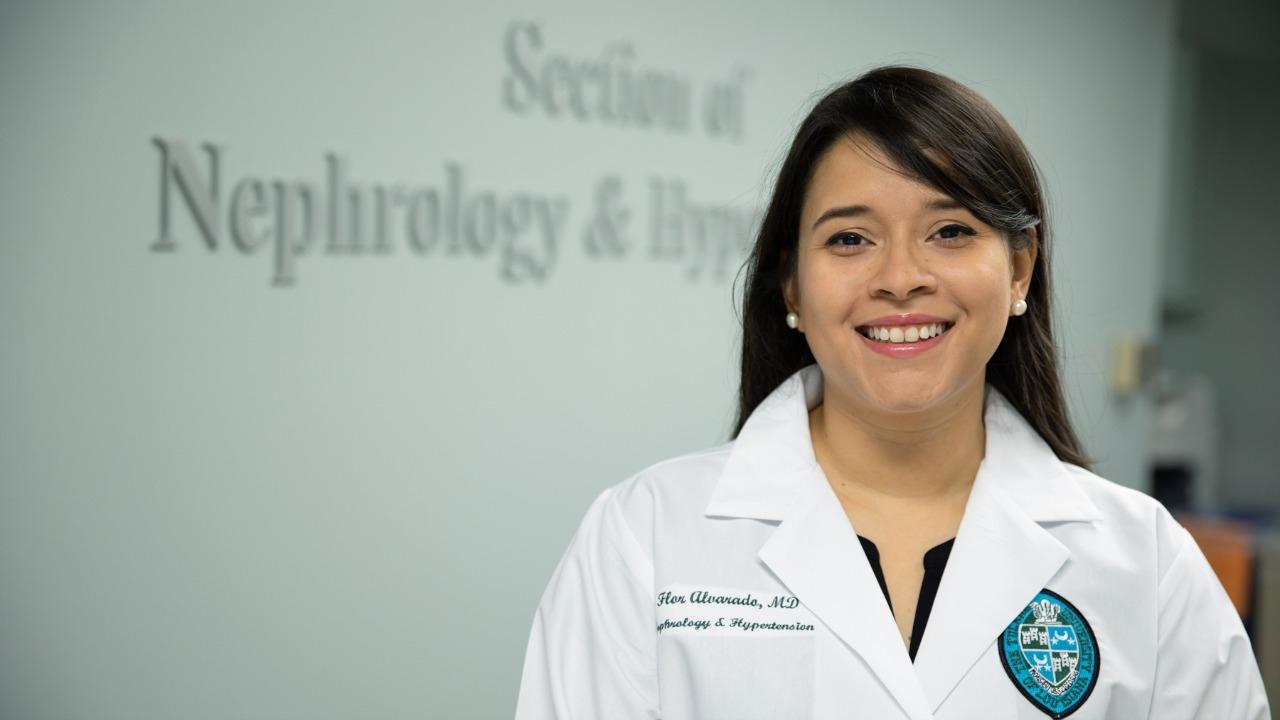Tulane nephrologist named NIMHD Health Disparities Research Institute Scholar
Flor Alvarado, MD, MHS, MPH, grew up in Honduras and Texas, and saw early on how social risk factors such as socioeconomic disadvantage influence health outcomes. Health inequities became even more apparent during Alvarado’s fellowship training to become a board-certified nephrologist. There were patients who didn’t have health insurance, which limited their access to home dialysis and kidney transplantation. Moreover, making it to dialysis appointments three times a week was a struggle for several patients due to transportation issues or financial constraints like the inability to take time off work.
Alvarado, assistant professor of Nephrology and Hypertension at Tulane University School of Medicine, has been named a 2022 Health Disparities Research Institute scholar. The program is part of the National Institute on Minority Health and Health Disparities (NIMHD) and is designed to help prepare junior investigators who want to become independent researchers. The program features lectures on minority health and health disparities research, small group discussions, mock grant review and seminars. The scholars will also meet with experts in the field and share potential projects they have in mind.
“The goal of this program is to fine-tune my research ideas and project aims to later submit a competitive grant application to a national funder,” said Alvarado. “I aim to become an independent health disparities researcher, committed to developing and implementing community-based interventions to improve kidney and cardiovascular outcomes in historically underserved populations, particularly Latinx, African American, and low-income communities.”
Alvarado is one of only 50 scholars to be selected to attend the Health Disparities Research Institute. She’s excited to turn her research ideas into something that could have a big impact.
“As a health disparities researcher, I have the opportunity to make changes locally, nationally, and even globally,” said Alvarado. “I’m excited to tackle health disparities via the implementation of evidence-based health interventions and improve patient empowerment among historically underserved communities.”

